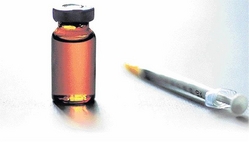HEALTH & FITNESS - Cervical cancer vaccine: prevention, not cure
Published: Monday | August 24, 2009

Cervical cancer is one of the leading cancers that cause death among women worldwide. However, with two new vaccines on the market to prevent cervical, if all goes well, the rate could decline.
The vaccines were recently made available in Jamaica. Prior to being released on the local market, they were tested and launched overseas.
According to gynaecologist Keisha Buchannan of Gynae Associates, the two vaccines, Gardasil and Ceravix, are being administered to girls and women. "There are two types here, there is the Gardasil and the Ceravix and both have been shown to prevent cervical cancer."
The vaccines are said to protect against the types of Human Pappilomavirus (HPV) that cause cervical cancer. The virus comes in different types and Buchannan explained that both vaccines are designed to fight some of these to prevent the cancer. "Gardasil is designed against the HPV 6, 11, 16 and 18 and Cervarix protects against HPV 16 and 18. Both are equally effective," she notes.
While they may be a bit costly, the gynaecologist notes that she is an advocate for such a vaccination. Cervarix is estimated to cost $7,500 and the Gardasil approximately $11,000. These injections are administered three times over a six-month period.
Does not treat cancer
The vaccine does not treat cancer, which is why it is advised to be taken at an early age as a preventative method. Buchannan says she supports the call for children to be given the vaccine. Cervarix is suitable for children as young as 10 and adults up to 55 years old while Gardasil is ideal for females nine to 26 years old.
While the vaccination is geared at preventing cervical cancer, it is said to be also quite effective in preventing other forms. Buchannan highlights that it is also very powerful in fighting vaginal, anal and some forms of throat cancers as well as genital warts.
Dr Buchannan recommends that even if the vaccination is received, annual Pap smears should be continued.
latoya.grindley@gleanerjm.com


